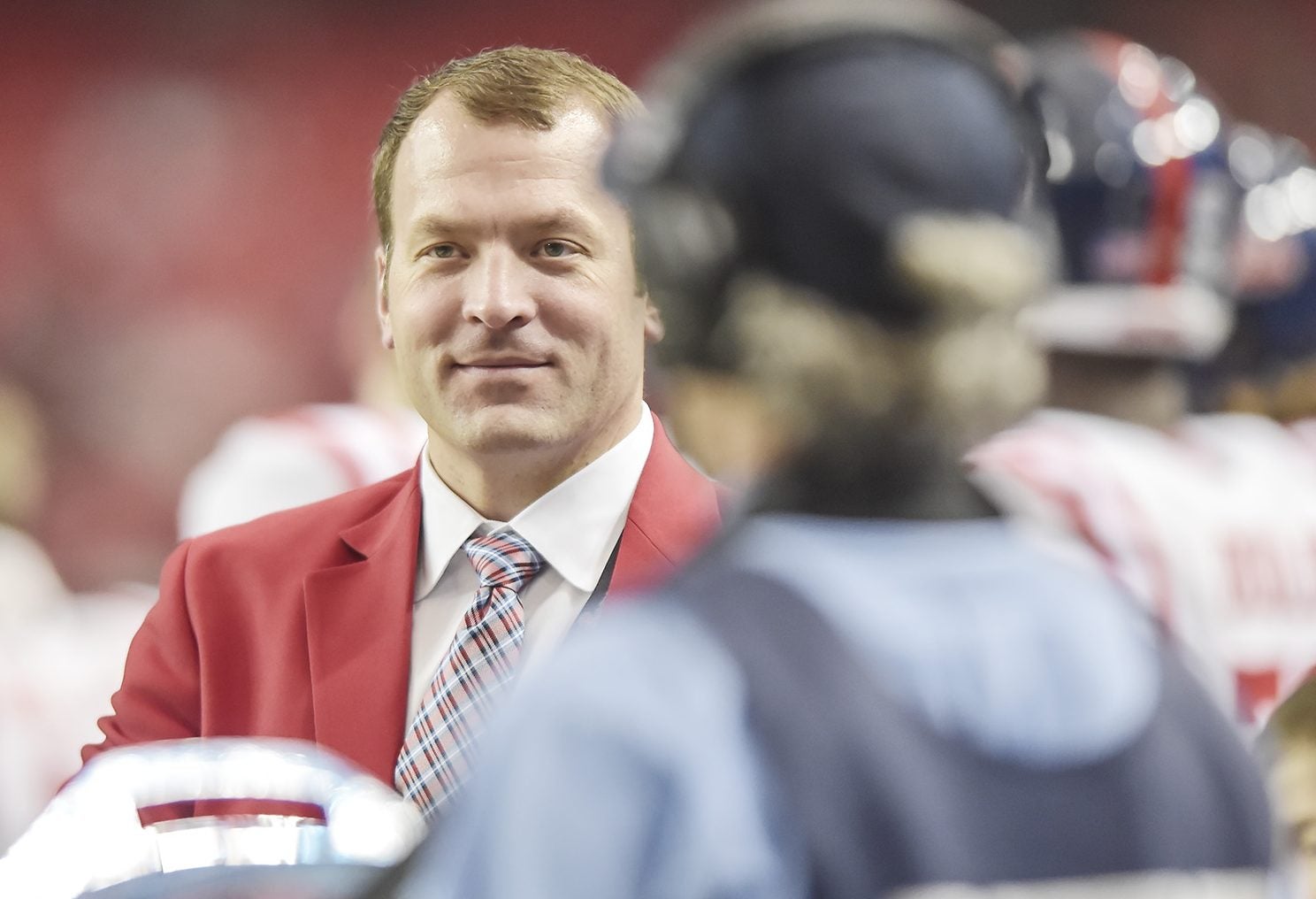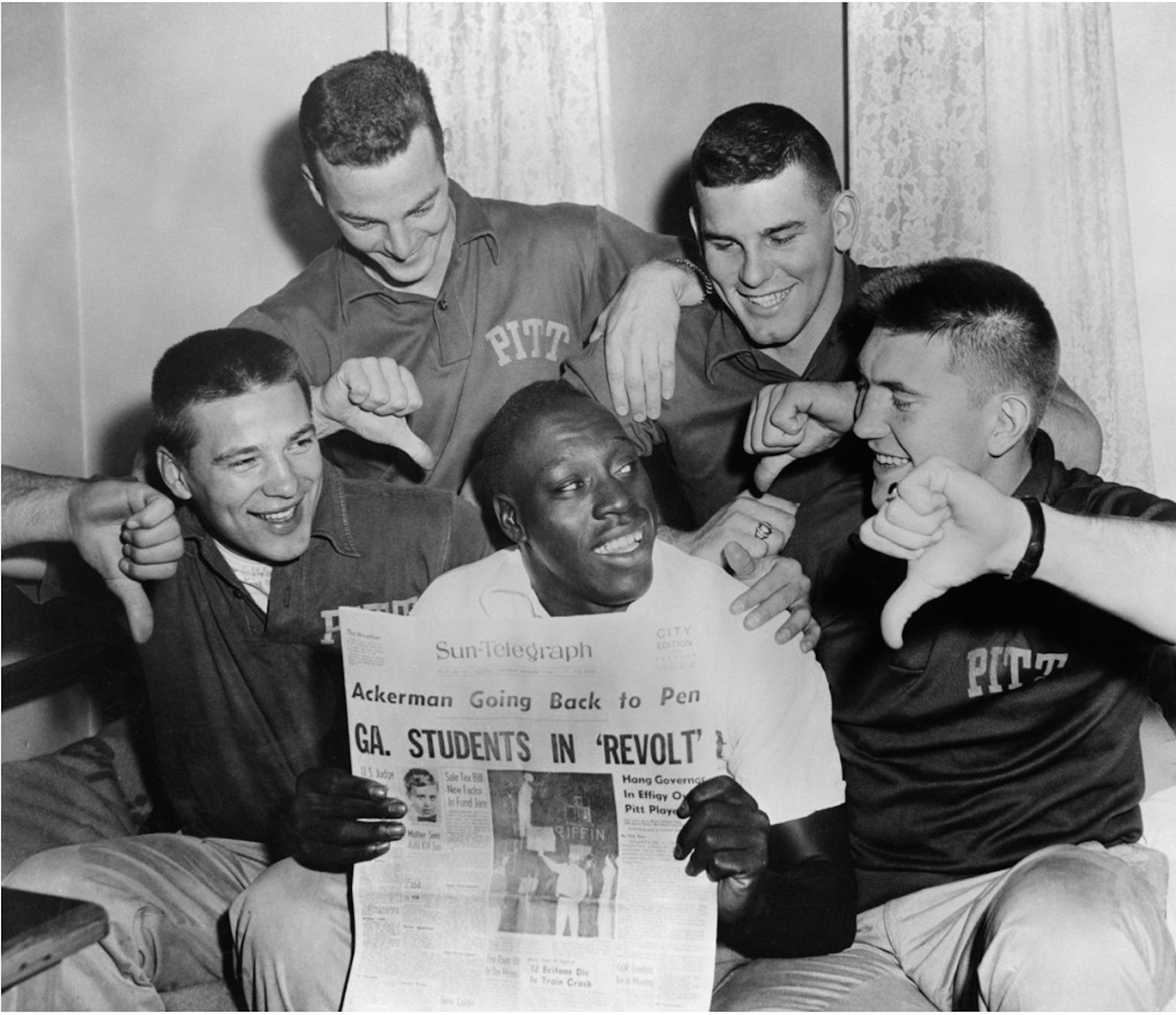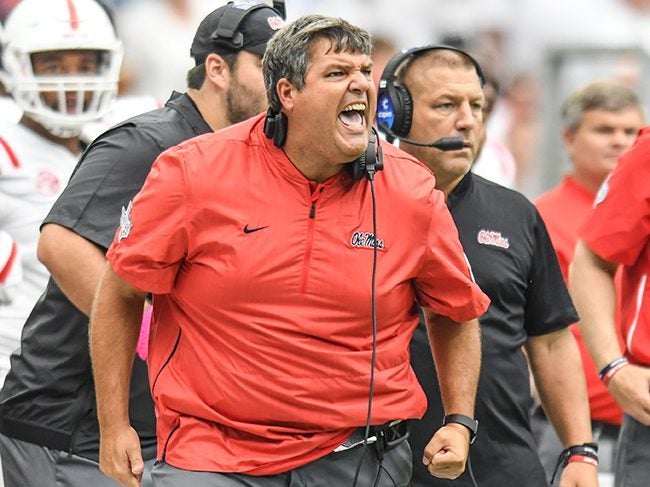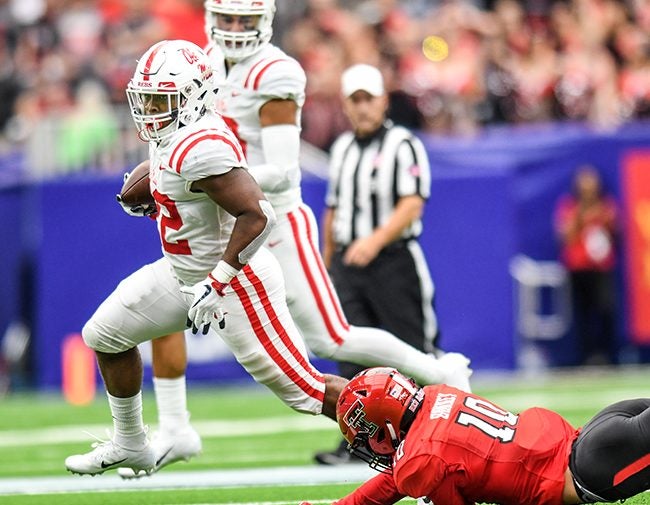BLOG: Bjork talks state of Ole Miss, SEC athletics
Published 11:29 am Friday, April 22, 2016

- Ross Bjork at Ole Miss vs. TCU in the Peach Bowl, in Atlanta, Ga. on Wednesday, December 31, 2014. TCU won 42-3. (Bruce Newman)
The annual Rebel Road Trip, Ole Miss’ multi-stop caravan throughout the Southeast promoting the school’s athletic programs, made its final stop of the spring this morning at the Oxford Conference Center. The event’s speakers are headlined by head football coach Hugh Freeze and athletic director Ross Bjork.
Before addressing the hundreds of alumni and fans in attendance, Bjork spoke with the EAGLE about a number of topics. The school has commented as much as it can on the ongoing NCAA investigation, which was delayed Thursday after the school was granted an extension to respond to its Notice of Allegations after one was requested by an involved party other than Ole Miss (read about that here).
The following is the full transcript of the conversation with Bjork.
What’s your pulse on the current state of the athletic programs?
Ross Bjork: There’s a ton of momentum right now. Obviously if you look at football, we finished in the top 10. We’ve got three trophies (Magnolia Bowl, Egg Bowl, Sugar Bowl) in our possession. Recruiting, there’s momentum. Facilities, there’s momentum. But I really look across the board whether it’s softball winning the most games in a single season. They did that last year as well. Volleyball has won more games over a two-year stretch than any time in history. Track and field, every time we turn around, they’re setting a personal best or a conference record or a meet record or something like that. Track and field is evolving. Women’s golf finished No. 7 in the SEC. You look at all the programs. Now the ones that get the attention, in baseball, people want us to host. To me, we’re in position for that. We’ve got to finish strong. Our RPI is in the top 10. Basketball, we didn’t get to the postseason. That’s what the expectation is is to get to the postseason and make a deep run in the tournament. But now we have the foundation. To me, all of our programs are better off. Some we need to tweak a little bit, some we need to add a few ingredients. But overall that foundation is really strong in all facets. Academically we’ve got our best profile. Competition, I think we have our best profile with more to come. And then we’re always teaching and educating. We make mistakes. We have social conduct problems that happen and pop up. How we handle that will tell I think the true test of our program, and I think we’re doing that the right way. I think in all facets, things are on the right path. Now the key is growth. We’ve got to continue it. We can’t stop. That’s the exciting part is there’s more to come.
Men’s basketball didn’t make any kind of postseason tournament last season. Now that you have the Pavilion, do NCAA Tournament berths need to be a more frequent occurrence?
I think consistency now is the key. I think consistent runs in that postseason. We’ve really put ourselves in position in the SEC standings. This year, we finished tied for fourth. We were like the sixth seed going into (the SEC tournament). We’ve got to do better non-conference wise to strengthen that strength of schedule. We thought we did it going into this year. We just didn’t get any help. To me, I’m not sure we really understood the impact of the (Tad Smith) Coliseum until now. Now we can really see us take off. Before it was such an albatross if you will that you didn’t even talk about it. It was like you put a curtain up in the recruiting vehicle like, “All right, don’t look over there.” Now we’re taking (recruits) to the Pavilion on the first stop on the recruiting visit. To me, it’s going to change the narrative of our program. It elevates us. It’s a big investment. It shows commitment, and I think we’re seeing that on the recruiting trail. We’re going to be in the transfer market again for 2016-17, but after that, I think we can really settle in on recruiting that next tier (of high school players). And (head coach) Andy (Kennedy) and his staff are already doing that.
What does the Southeastern Conference need to do to elevate its profile in men’s basketball and get more teams in the NCAA Tournament?
We’ve done a lot in scheduling, so that’s sort of date-driven stuff that we’ve done. We’ve got to continue that. You don’t need to schedule those people above 200 in the RPI. You’ve got schedule people below that. Strength of schedule is important in the non-conference, but it seems like the narrative has to change. We have good basketball, so how do we sort of change that mindset and change that culture? Part of it is that non-conference winning record and scheduling at a high level, but it’s also talking to people about basketball culture and recruiting at a high level. I think we have the right coaches in our league. Andy’s now the dean of coaches, finishing his 10th year. So we’re in a leadership position from that perspective. So I think we have to essentially change the culture around basketball and really talk about it differently and invest in it different, which obviously we’ve done. I think we can get there if everyone’s committed, and I think everyone is committed. I think everyone around the table, they get it. We cannot be in this position any longer. We’ve got to get more teams in the Dance.
Hugh Freeze is in favor of playing a real spring football game. What’s your take on that idea?
What I always find interesting is during the NFL training camp period, they always have controlled scrimmages between two teams. They bring it to a training camp site, so I think something like that would be interesting to look at, a controlled scrimmage environment. A charity tie-in would be really neat. Obviously you’d have to change legislation because you’re only allowed 12 football games, so you’d really have to look at the dynamics of that. I think if you look at the whole conversation around college football, we’ve had this whole satellite camp discussion. Now we’re having a recruiting calendar discussion. Now you might have a spring game discussion and obviously the playoff and the data points and all of that. To me, we need to have a broader conversation, and I think we have the right structure in place. The football oversight committee is in place to do all of that, so I think it needs to be a broader conversation. I don’t think we can do one-off things, and that’s what’s happened with the satellite camp. It’s been a one-off conversation. But people are forgetting a holistic view of it. I think the spring game ties into that.
What else do you think needs to be discussed in this “broader conversation”?
What I think is the recruiting calendar. Now these satellite camps (which were recently banned for Football Bowl Subdivision schools by the NCAA) are turning into recruiting camps. So why not do something in the spring period where you do jamboree-type events and you bring college coaches in where it’s sponsored maybe by the NCAA? Right now, it’s a six-week period. Maybe it become eight weeks, and part of that eight-week period is these recruiting events or showcases. To me, the satellite camp issue has been born out of the recruiting cycle, and to me, we need to change the recruiting cycle if we want to bring the camp aspect to it. Camps were originally to learn and to get better, not be recruited. Now they’ve turned into this recruiting thing. And so if it’s a recruiting thing, let’s make it part of the recruiting calendar. And I think the other narrative is college coaches do not want to turn football recruiting into basketball recruiting where it’s outside the scholastic environment in these high schools. So if it’s in that six- to eight-week period, that means it’s during the high school school year. I think that’s where we need to get to is really look at is how does scholastic football, how does the calendar look as it relates to contacts during the spring and contacts in the fall wrapped up into maybe some sort of clinic or showcase or recruiting event where kids can still be seen. I think that’s where we need to look at.
What would be the process for real spring games to become a real thing?
The conference would have to essentially agree to sponsor a legislative change. That would go to the NCAA council and legislative body. It could be an autonomy piece or it could be an FBS piece. It would just go through the cycle of getting into the 2016-17 legislative cycle. You could get it on the agenda and you could talk about it, but it has to start with your conference first.
(Note: Ole Miss plans to broach the subject of a real spring game again at this year’s SEC spring meetings and “really see if there’s an appetite in our league,” Bjork said. “If there’s really no appetite within our league, then it’s hard to do anything independently. You’ve got to work within your conference.”)
What’s the latest on the North end zone renovations at Vaught-Hemingway Stadium?
On schedule and under budget right now. It’s got to be ready. We’ve got seats, concessions, restrooms and all that stuff. It’s on track. The schedule is mid-August, the contracted schedule completion. That gives us a couple weeks to wrap things up, move some stuff in, move equipment in and those type of things. We’ll be pushing it right up to that first game just with little things to wrap it up.
What about the ongoing track repairs?
That’s on schedule to be done in mid-July. They’re laying rock right now and about to lay some asphalt and then they’ll starting laying the surface here pretty soon. That’s on track. The track is on track.
Any other projects fans should know about?
We’re starting construction on the Gillom Center at the end of May. That will be about a year-long project. We’ll play volleyball in the Pavilion this fall. They’re redoing that whole building. We’re working with the city of Oxford on an indoor tennis complex that will be next to the Activities Center right there on Price Street and Molly Barr (Road). That’s moving forward. We’ll hopefully break ground on that later this fall. So those are a couple things that don’t get a lot of attention but are on the horizon.




